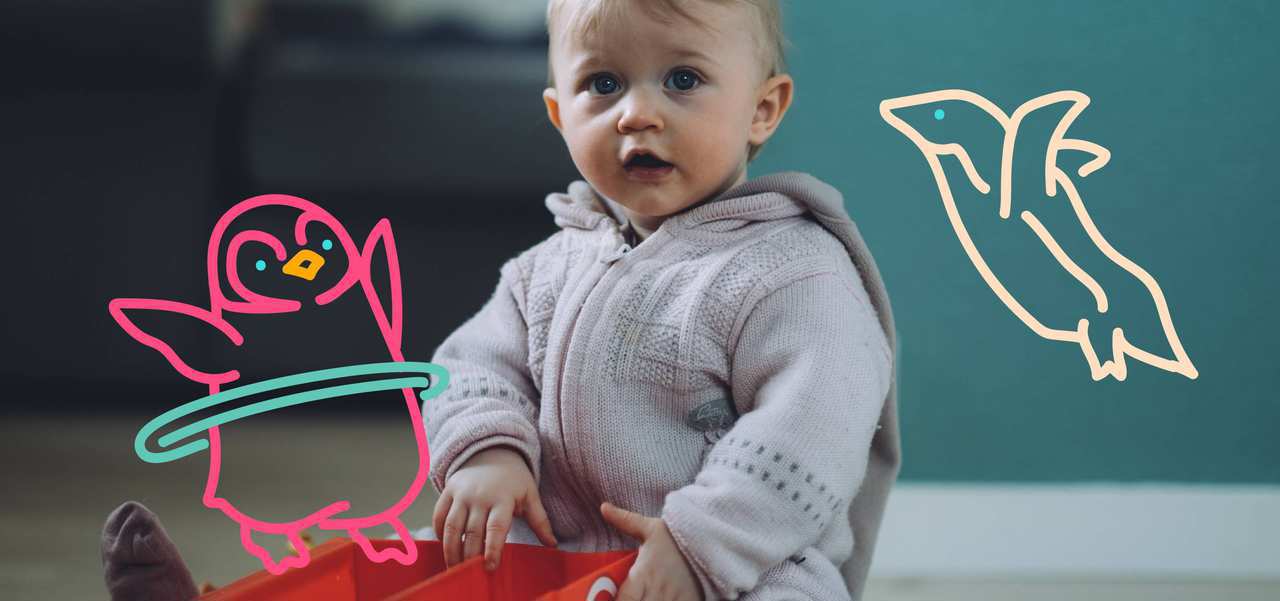
Children attending child care learn so much from their educators and peers. They learn how to share, try new foods, be away from their parents, and learn brand new skills.
An important element of their learning is independence. Educators work hard to teach the children in their care to look after their belongings and the centre’s own equipment, as it sets them up for success for life at school and beyond.
As parents we can implement a lot of these at home too, which will help get you and the children out the door on time (with shoes on!).
1. Being a good role model
The first step for educators and parents is to role model the behaviour that we want from the children.
Educators ensure that they put supplies and toys back when they have finished using them so that they know exactly where to find them when they need them later.
Children see this behaviour and it becomes the norm, which they then try to emulate.
2. Pack and unpack their own bag
For a child, a big part of learning to take care of your belongings is being given the chance to understand where your things are at any time. Responsibility for kids teaches them discipline and independence.
For example, an educator would tell the children to go and get their hats from their bags before they head outside, which gives the children a chance to independently go and collect their hats.
At the end of the day, an educator will let the children know to pack their finished drawings and craft projects into their bags, rather than doing it for them. There are many benefits of packing away for toddlers. It teaches children how to recognise their own things, use zippers, and start to get an understanding of what it means to look after their own belongings.
At home, encouraging your child to pack and unpack their own bag is a great habit to get into. At first, you might lay out the items that they need to pack, but once they get the hang of it, you can encourage them to go and find what they need for the day.
Children love a checklist, so it might be helpful to create a visual reminder of what they need for child care, e.g. jumper, hat, and water bottle.
3. Avoid labels
Educators avoid labelling children as ‘forgetful’ or ‘irresponsible’. They know that children are likely to be affected by the self-fulfilling prophecy of these types of labels. As a rule, they would discuss the behaviour, rather than the child.
For instance, they might say ‘Oh dear, there’s glitter everywhere, what a mess!’ rather than saying ‘Oh dear Sam, you’re so messy!’
For parents, this is an important tip to take note of, as it’s easy to fall into the trap of telling our children ‘You are always losing your hat’, for instance.
4. Encourage rather than enforce
Following on from the point above, educators try to teach children to understand what needs to happen next. For instance, in the above example, they might ask ‘What do we need to do to clear this up?’ rather than just taking over and clearing up the mess.
For a parent, it might mean asking your child ‘What else do you need to do to be ready to go?’ in the morning, instead of directing them to get their shoes on, for instance.
At first, it might take a while for your child to get the hang of this way of learning, but after a while, they’ll enjoy knowing what they need to do. Giving lots of positive feedback is a surefire way to encourage good behaviour.
5. Clean up after an activity
After completing an activity such as painting or playdough, the educators encourage the children to help pack away. This teaches them that they need to take care of the art supplies so that they are there when they need them next time, or to put the playdough in an airtight container so that it stays soft for another day.
This is a great skill to teach a child and can be reinforced by parents at home. When your little one finishes a puzzle, don’t let them move on to another activity before they have packed it away. You can do it together, or make packing it away a game, but it’s important to encourage them to take responsibility for their own toys.
6. Give feedback on a good effort, not just a finished task
Sometimes the children won’t be able to quite complete the task that they’ve been asked to do. You’ll notice in this instance that an educator will offer lots of encouragement and praise for the child’s effort, and show them how to complete it so that next time they can do it independently.
Educators sometimes encourage children to try new tasks that may be a little beyond their current capability. For instance, they might ask them to help set the table for lunch, and the child has trouble working out how many plates they need.
The educator would turn this into a learning opportunity, showing them how to count the number of children and then count the number of plates needed. The child doesn’t need to do the job perfectly to get the praise from their educator, just trying their best is something to be proud of.